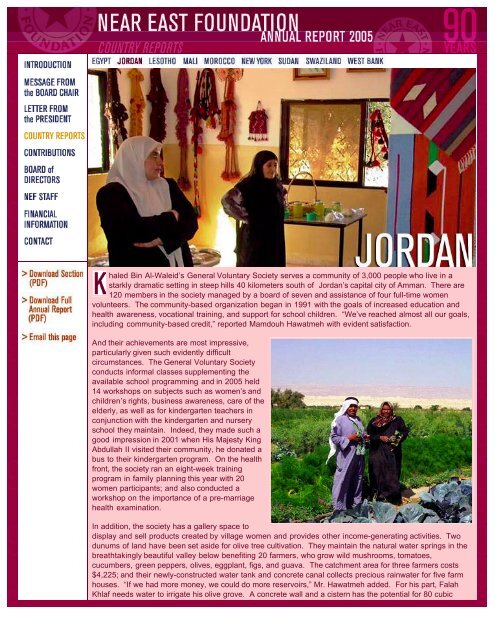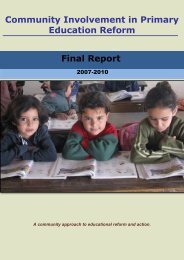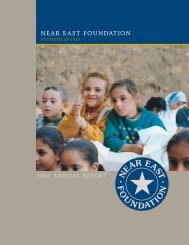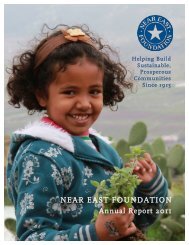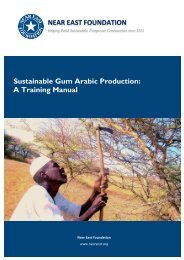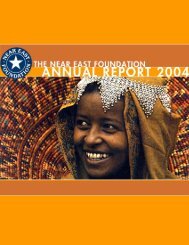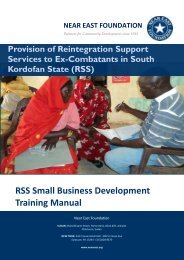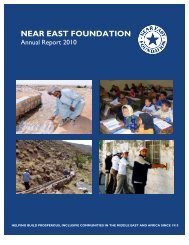NEF 2005 Annual Report - Near East Foundation
NEF 2005 Annual Report - Near East Foundation
NEF 2005 Annual Report - Near East Foundation
You also want an ePaper? Increase the reach of your titles
YUMPU automatically turns print PDFs into web optimized ePapers that Google loves.
haled Bin Al-Waleid’s General Voluntary Society serves a community of 3,000 people who live in a<br />
starkly dramatic setting in steep hills 40 kilometers south of Jordan’s capital city of Amman. There are<br />
120 members in the society managed by a board of seven and assistance of four full-time women<br />
volunteers. The community-based organization began in 1991 with the goals of increased education and<br />
health awareness, vocational training, and support for school children. “We’ve reached almost all our goals,<br />
including community-based credit,” reported Mamdouh Hawatmeh with evident satisfaction.<br />
And their achievements are most impressive,<br />
particularly given such evidently difficult<br />
circumstances. The General Voluntary Society<br />
conducts informal classes supplementing the<br />
available school programming and in <strong>2005</strong> held<br />
14 workshops on subjects such as women’s and<br />
children’s rights, business awareness, care of the<br />
elderly, as well as for kindergarten teachers in<br />
conjunction with the kindergarten and nursery<br />
school they maintain. Indeed, they made such a<br />
good impression in 2001 when His Majesty King<br />
Abdullah II visited their community, he donated a<br />
bus to their kindergarten program. On the health<br />
front, the society ran an eight-week training<br />
program in family planning this year with 20<br />
women participants; and also conducted a<br />
workshop on the importance of a pre-marriage<br />
health examination.<br />
In addition, the society has a gallery space to<br />
display and sell products created by village women and provides other income-generating activities. Two<br />
dunums of land have been set aside for olive tree cultivation. They maintain the natural water springs in the<br />
breathtakingly beautiful valley below benefiting 20 farmers, who grow wild mushrooms, tomatoes,<br />
cucumbers, green peppers, olives, eggplant, figs, and guava. The catchment area for three farmers costs<br />
$4,225; and their newly-constructed water tank and concrete canal collects precious rainwater for five farm<br />
houses. “If we had more money, we could do more reservoirs,” Mr. Hawatmeh added. For his part, Falah<br />
Khlaf needs water to irrigate his olive grove. A concrete wall and a cistern has the potential for 80 cubic


